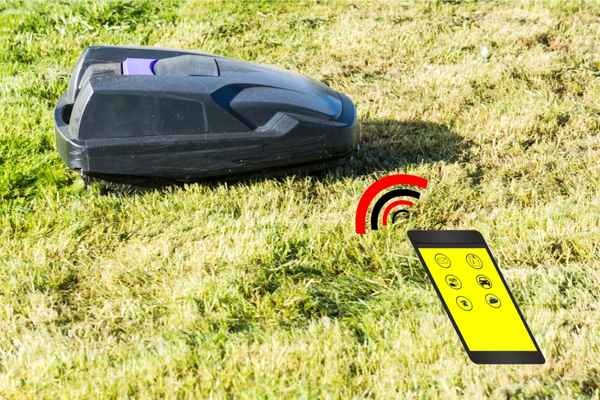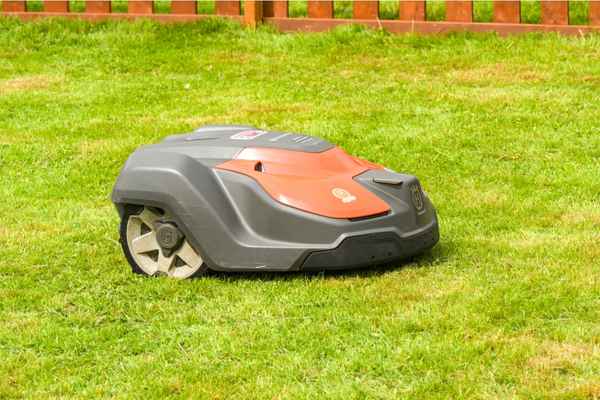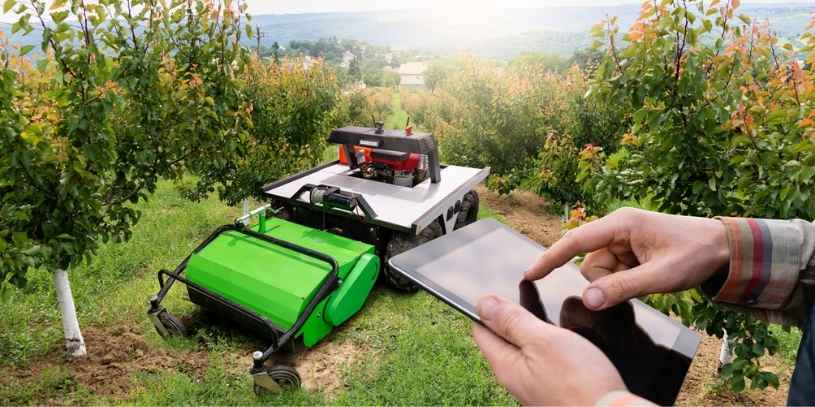There was a time when mowing the lawn was a weekly sweat-soaked endeavor powered by gasoline, grit, and grumbling. But the world has changed. Today, mowing can be as effortless as scheduling a calendar reminder, or for the hands-on types, steering a machine from the porch with a remote in hand.
Two remarkable advancements are now making headway in lawn technology: the remote control mower and the automatic robotic mower. Both are smart and efficient, but they serve very different masters.
If you’re considering an upgrade to your outdoor maintenance, you’ll need to first weigh your options. Read on to find out what makes these machines tick, how they differ, and which one might be your new best friend in the backyard.
What is a Remote Control Mower?
At one time, the remote control mower may have seemed like something out of a sci-fi film. It comes equipped with treads, motors, and cameras that respond to the push of your thumb on a joystick. Instead of walking behind it, you simply guide it.
A remote control lawn mower allows you to manually steer the machine across your property. It receives real-time instructions from a remote device, which could be a handheld controller or even a smartphone in more advanced models. It’s kind of like flying a drone, except it’s closer to the ground and far more practical for your lawn.
These machines shine in tough environments. Have a steep hill? No problem. A patch of rocky land? It’ll handle it. These mowers can chew through thick brush, climb embankments, and maneuver around obstacles with precision.
A remote lawn mower is also surprisingly fun to use, and there’s a satisfying, hands-on feel to it. Landscapers, municipalities, and rural landowners often swear by them. They’re ideal for large properties, parks, and commercial spaces where precision and terrain control matter more than full automation.
What is an Automatic Lawn Mower?
Unlike a remote control mower, an automatic mower (often called a robotic mower) requires no hands-on control once you set it up. You install boundary wires or use GPS mapping to tell it where it can and can’t go. After that, it’s on autopilot. Each day, it quietly emerges from its docking station, trims the lawn, and routinely returns to charge itself.
Additionally, it clips a tiny bit of grass each time it runs, which helps maintain lawn health while reducing clippings and thatch buildup. Over time, it builds a routine that results in a consistently manicured yard without you lifting a finger.
These mowers are incredibly energy-efficient, whisper-quiet, and safe for pets and children. Many come with rain sensors, GPS tracking, smartphone apps, and even voice assistant integration. In fact, they’re so quiet you could run them at midnight without waking the neighbors.
What Are the Pros and Cons of a Remote Control Mower?
Like any specialized equipment, remote control mowers come with both advantages and trade-offs. Here are the pros and cons to help you decide if a remote mower is the right fit for your needs.
Advantages of Remote Control Mowers
- Unmatched terrain control: Remote control mowers for slopes are built to tackle steep inclines and rugged patches where a robotic mower might slip, stall, or even tip over.
- Manual precision: You control exactly where and how the mower operates, so they work on intricate, obstacle-filled landscapes.
- Versatility: These machines perform well when cutting through thick brush, muddy ground, and in a variety of other environments where automatic mowers might fail.
- Immediate action: If a patch is missed or conditions suddenly change, you can respond in real time with no need to reprogram or reset anything.
Drawbacks of Remote Mowers
- Requires constant presence: Unlike automatic mowers, these machines need an operator at the controls the entire time. There’s no opportunity to multitask while the job gets done.
- Steep learning curve: There’s a period of training and familiarization before you can mow efficiently and safely, especially with a commercial remote control lawn mower.
- More maintenance needs: With more mechanical parts and components involved, there’s typically more upkeep compared to simpler automatic units.
- Noise and fuel use: While many remote control lawn mowers are battery-operated, some run on gas engines. This means more noise, higher emissions, and less eco-friendly operation than electric alternatives.
What Are the Pros and Cons of Automatic Mowers?
Automatic lawn mowers are an impressive innovation in modern landscaping, but they’re not without limitations. Here’s are the pros and cons of automatic mowers to help you decide if this futuristic tool is a good fit for your lawn.
 Advantages of Automatic Mowers
Advantages of Automatic Mowers
- Total autonomy: Automatic mowers operate independently, so you don’t need to be home or even pay attention. The mower handles the “when,” “where,” and “how” all on its own.
- Consistent lawn health: Regular trimming helps grass grow thicker and healthier while naturally reducing weed growth over time.
- Quiet operation: These mowers are nearly silent, which makes them ideal for use in residential neighborhoods during any hour of the day or night.
- Eco-friendly performance: Most models run on rechargeable batteries and produce zero emissions, which makes them a greener alternative to gas-powered equipment.
- Smart technology: App control, GPS fencing, theft protection, and multi-zone programming make these mowers convenient and highly customizable.
Drawbacks of Robotic Mowers
- Limited to navigable terrain: Automatic mowers often struggle with steep slopes, dense underbrush, or very uneven ground that exceeds their capabilities.
- Complicated setup: Installing a wired boundary can be time-consuming. However, newer models with wireless mapping are starting to simplify this process.
- Obstacle sensitivity: Sticks, toys, garden décor, or other small objects can interrupt mowing or cause the mower to shut down temporarily.
- High upfront cost: While prices can range from less than $2,000 to well over $13,000, the initial investment may still catch some homeowners off guard.
Automatic or Remote Control Mower: Which One is Right for You?
Your decision comes down to your land and your lifestyle. If you’re managing acres of land, slopes, or difficult terrain, you likely need control and horsepower. That’s where a remote mower makes its case. In fact, if you’re shopping for a remote control mower for sale, you’ll find many variations. Some are as powerful as small tractors, with tank treads and brush-clearing blades.
However, if you’re a busy homeowner with a tidy half-acre and a distaste for yardwork, the automatic mower can provide an easy solution to lawn care. Consider it a lifestyle upgrade. It’s like owning a robot vacuum but for your yard.
 Which Mowing Option Saves Me Money in the Long Run?
Which Mowing Option Saves Me Money in the Long Run?
When comparing long-term savings between remote control mowers and automatic robotic mowers, the key factors are upfront cost and repeated expenses over time. Heavy-duty commercial remote-control mowers typically range from about $2,000 to $5,000, though higher-end tracked units can cost much more.
However, robotic mowers start below $2,000 and can cost well over $13,000, depending on which model you get. Models designed for homeowners, such as the Husqvarna 415X to 550H, typically range from $2,000 to $3,500. However, Kress models designed for golf courses and commercial properties will cost more.
For standard residential use, an automatic mower is almost always the smarter investment. You pay a similar or lower upfront cost, then enjoy years of hands-free mowing with minimal effort. Additionally, if you own or manage a golf course, commercial property, or park, a commercial robotic mower can free up time for your staff to focus on other tasks. It can also free up the funds you would need to hire additional staff.
What Other Factors Should I Consider When Making My Decision?
Beyond upfront cost and terrain compatibility, remote control mowers include several multi-faceted parts that require more upkeep. However, automatic mowers only need occasional blade replacements and software updates.
Additionally, robotic mowers have a battery life of 60 to 90 minutes and recharge on their own in about an hour. This means no spending money to repeatedly refuel a gas-powered mower. Plus, many robotic mowers come standard with app control, GPS fencing, and theft protection that offer more convenience than remote-controlled mowers.
Let AOS Help You Decide Which Mower Fits Your Needs
When choosing a mower, the last thing you want is a machine that costs you time and money. The good news is, you have plenty of options that fit your land, your lifestyle, and your long-term goals. That’s where the expert team at Automated Outdoor Solutions comes in. We know the real-world factors that make or break your mowing experience, and we can help you make a confident, informed decision.
Led by Joe Langton and backed by years of hands-on experience, AOS has worked with all the top brands in robotic mowing. We’ll walk you through your options, discuss your lawn’s layout and budget, and even schedule a live demo so you can see the equipment in action.
Have questions about pricing or performance? Contact us online, call 815-308-5077, or check out our online shop. Based in Woodstock, Illinois and West Palm Beach, Florida, we serve customers nationwide.







